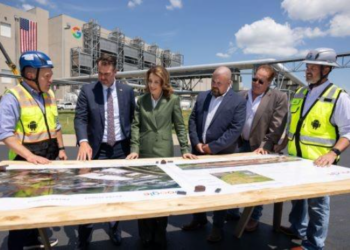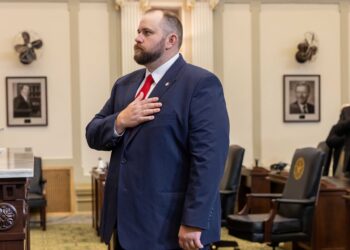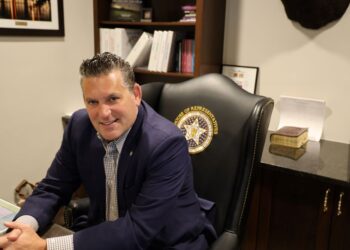OKLAHOMA CITY (OBV) – The State Chamber of Oklahoma released its agenda for the 2023 legislative session, a plan that includes revitalizing workforce and creating a positive tax policy.
“To grow and prosper, Oklahoma has got to be more competitive – competitive regionally and competitive nationally,” said Chad Warmington, President and CEO of The State Chamber. “Every year The State Chamber of Oklahoma is going to be researching and bringing policies to the State Capitol that make us more competitive in a variety of areas. Year after year, we will work hard to keep Oklahoma businesses moving forward and up the ladder.”
The agenda has two primary goals: revolutionizing workforce and making Oklahoma better for business.
The Chamber’s plan to revolutionize workforce includes the following actions:
- Increasing participation in the workforce by expanding childcare access and eliminating licensure barriers.
- Driving success by giving incentives for careers in high-demand fields, and rewarding schools that provide students specialized education and training toward their future careers.
- Redefining the state’s approach to workforce by establishing a Workforce Transformation Task Force to envision a more focused and streamlined workforce development system, as well as the creation of the Oklahoma Workforce Commission that will bring the Task Force’s vision to fruition and lead the vision for Oklahoma’s long-term workforce needs.
Click here for the 2023 Legislative Agenda infosheet.
Gov. Kevin Stitt issued Executive Order 2023-02, last week. The executive order outlines Stitt’s plan to streamline workforce. The order calls for the creation of the Workforce Transformation Task Force, which will create a plan to restructure workforce and lead to the appointment of a state workforce leader. A primary focus of the Task Force will be to envision educational avenues that will provide students specialized training that will lead them to job opportunities in a wide variety of workforce sectors.
Sen. Adam Pugh, R-Edmond, filed Senate Bill 621 a few days after Stitt issued his executive order. The bill, if passed, will create the Oklahoma Workforce Commission. The Commission will have the power to coordinate and develop Oklahoma’s workforce, create a workforce plan and utilize public and private funds to carry out its purpose.
“We need to be very specific about how we tailor the education system to produce the types of people and the types of skillsets that we need,” Pugh said.
Oklahoma’s trucking industry needs additional workforce to remedy a truck driver shortage, according to Jerome Redmond, President and CEO of American Truck Training.
New legislation can make obtaining a commercial driver’s license (CDL) less strenuous, Redmond said.
Redmond is hoping Oklahoma legislators will pass legislation to improve the CDL process. Doing so, he said, will positively impact Oklahoma’s workforce by getting more drivers on the road.
In addition to workforce, the Chamber’s goal to grow business in the state involves creating a better tax environment through the following two actions:
- Modernizing the state’s tax structure to make it the most competitive in the nation.
- Fostering a tax climate that will help businesses flourish and entice new businesses to relocate to Oklahoma.
“A pro-growth tax strategy for Oklahoma is incredibly important. Those states who have invested in pro-growth tax strategies have done much better economically than those who have not,” said Bill Schonacher, The State Chamber of Oklahoma Board Chairman. “It draws investment from outside of your state into your state. It draws migration. It’s the foundation to create a bold and business-friendly environment in your state.”
The legislature goes into session on Feb. 6.

















